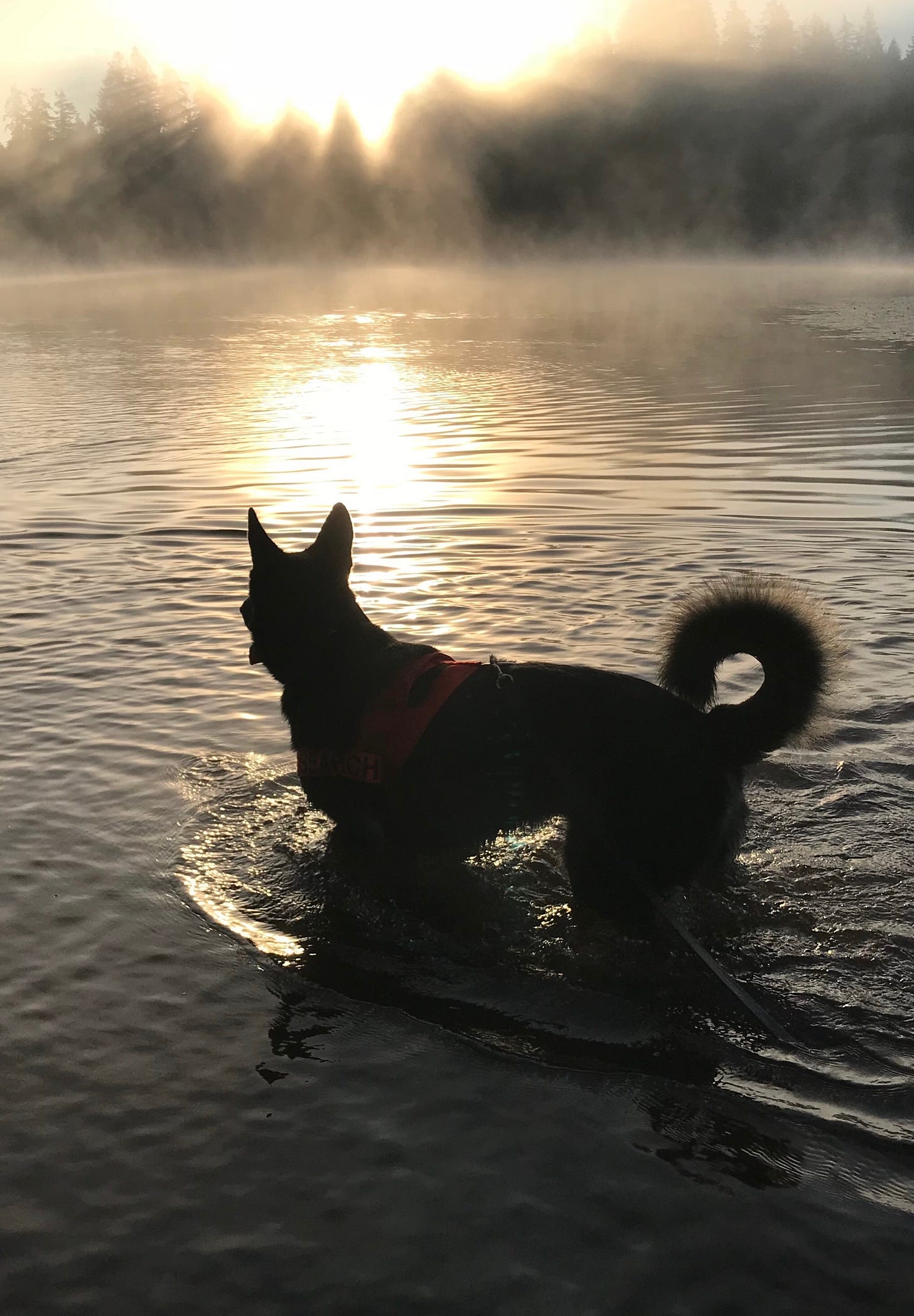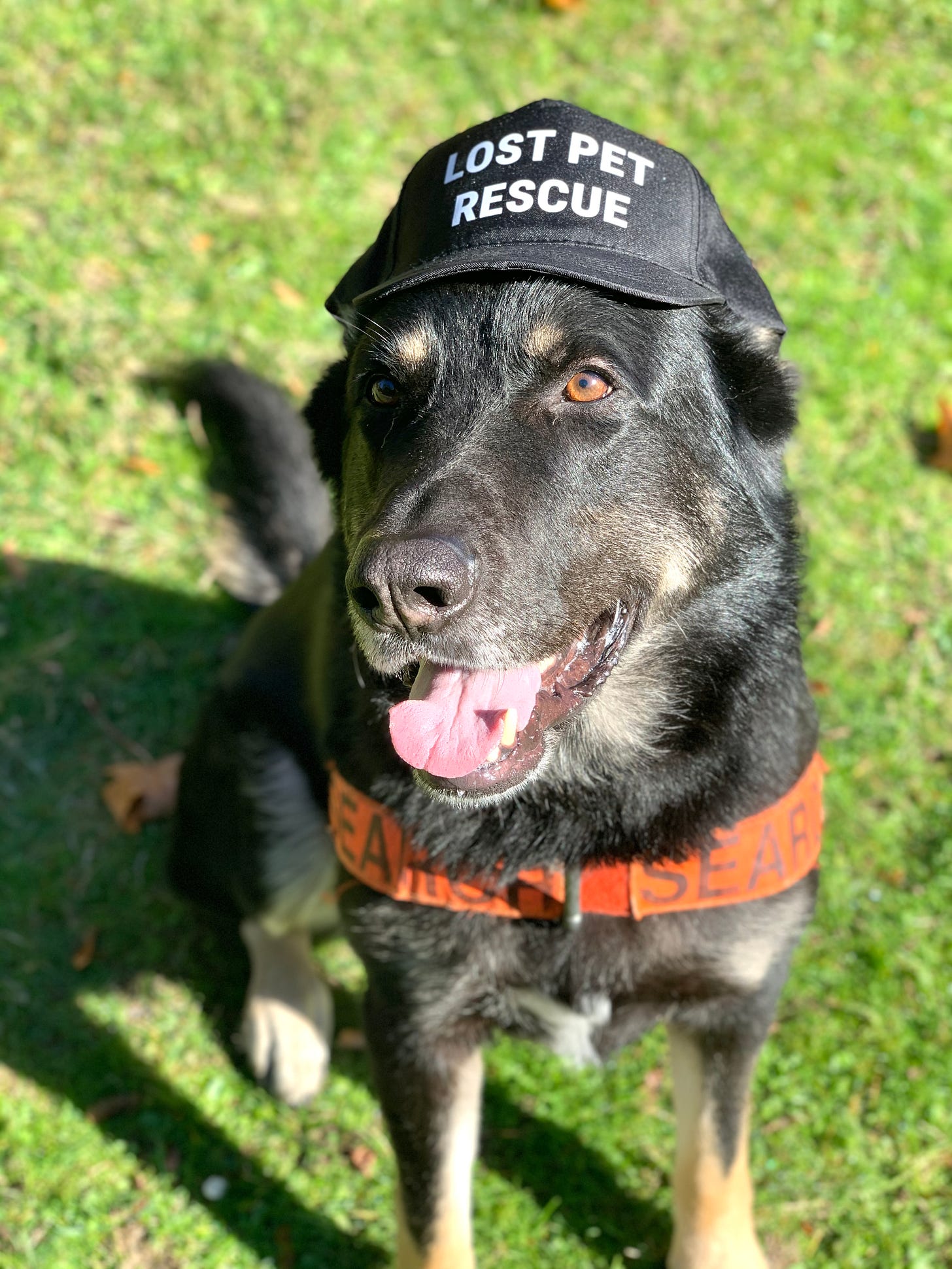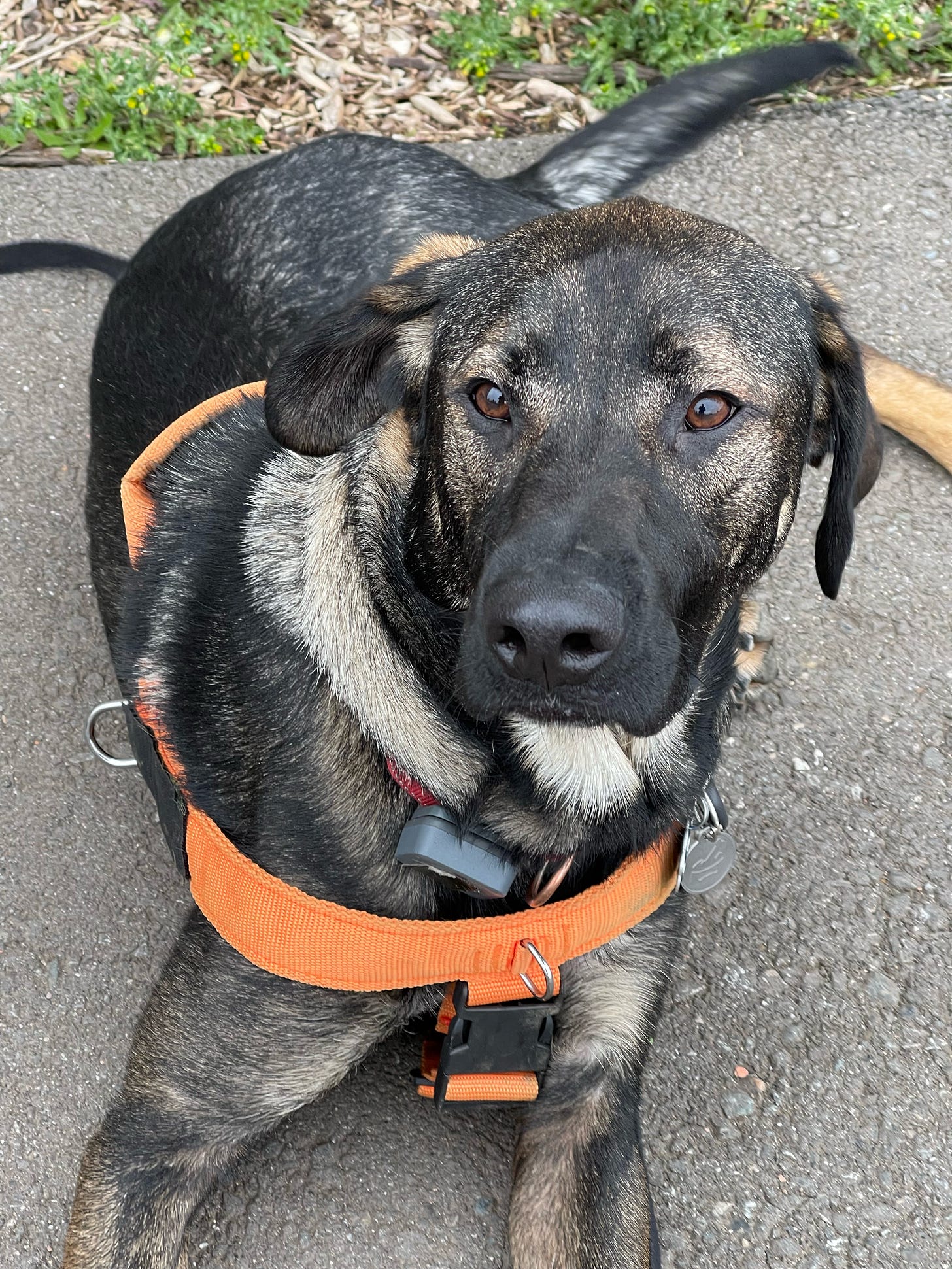Online Training 2024
Starting soon
I hate summer. Usually starting around the Fourth of July, we get overwhelmed with requests for help at a time when the warm temperatures severely limit our ability to help. Search dogs can’t work in the heat. A couple of days ago, we got up at 2 AM to get ready and drive a long distance to search for a lost cat. Just after dawn, Tino found the remains of the lost cat, who had been taken by a coyote. The cat’s family appreciated our help, and this evidence absolutely would not have been found without a search dog. However, I often wonder, if more dogs like Tino and Raphael were available, could we find more cats and dogs in need before it is too late?
I receive about 800 requests for help every year. I don’t advertise our services because I can’t keep up with the demand, and it seems like I would make people angry if I advertised our help and wasn’t available. At least 30,000 dogs go missing in the greater Seattle area each year. Probably a similar number of cats are lost. Easily, there could be ten Valentinos and ten Raphaels in Western Washington, and there would still be too many lost pets for 20 search dogs to keep up with. If we had a pool of search dogs and trained handlers, we could advertise the services of search dogs and trained “Pet Detectives,” and maybe we could help more cats and dogs before it is too late.
I would like you to take my training because there is a great need for professional help in the Seattle Area and across the country. (Also, there are way too many people offering bad advice on social media.) I regularly get requests to travel all over the US and other counties, and I have to decline because I can’t keep up with the demand in my area. I wish there was a network of people I could recommend. The fact that this type of service is desperately needed should not be your main reason for wanting to take the training, though.
I absolutely love working with my search dogs. Of course, I loved dogs before I first learned to do this work in 2008 with my first search dog, Kelsy. Doing this work requires me to forge a deeper bond with my search dogs, and with all dogs and cats. It is my job to understand their behavior and to know, as much as it is possible, what dogs and cats are thinking and feeling. Working with Tino and Raphael opens up an invisible world to me.
Beyond working with search dogs, I also get deep satisfaction from helping lost pets. Both Tino and Raphael were once lost. I used my knowledge of lost pet behavior and my network of animal advocates to help, to save their lives. Tino’s mother was a stray in the mountains when someone contacted me for help. I trapped her in a humane trap fairly quickly, when no other method would have been effective. Tino was born the next day. If Tino and his mother had not been caught, and quickly, it is likely they both would have died in the wilderness. Now, Tino saves lives.
Also, Raphael and Tino are just really great people, once you get to know them. They are my family and my friends. They are also beautiful creatures. I feel great pride in being associated with them. I am thankful to have a job that allows me to work closely with animals.
The upcoming online course will cover the material in my book, The Lost Pet Rescue Handbook. It is available online through this newsletter, where you can read the chapters through the links. I hope to have a class of 12 to 25 students, meeting online two nights a week for 8 weeks. We will set the days and times depending on what works best for most people. Please join this Facebook group to work out the logistics. The fee for the online course is $350, which includes access to the paid content of this newsletter. If you already have a paid subscription, the online course is reduced to $280. Please comment below if you have any questions, or join the Facebook group to discuss the course.





Hi James. I have a couple of questions about the search course. My dog, Cali, has always had a great nose for sniffing things out and likes to work. The only issue is, that she is dog and cat reactive (not aggressive.) She enjoys playing off lease with other dogs, but she is selective with her friends. She is a border terrier mix that I adopted from a Texas rescue. She does well given enough space that she’s comfortable with.
Would she still qualify as a candidate to do this kind of work?
Secondly, after 8 weeks, what what will we be qualified to do? I imagine there’s more learning to come… and would imagine there would be experiential training after that?
Thanks, And btw, I love your newsletter and articles!
Warmly,
Lisa Hade